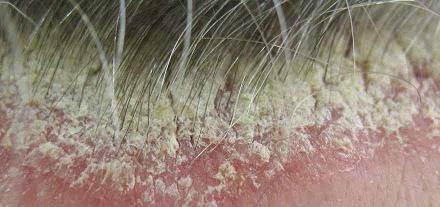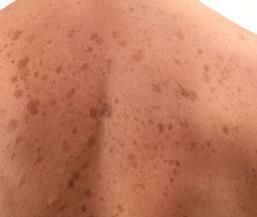Drinking is a prolonged abuse of alcohol in a row within a few days - weeks. The person who drinks can not interrupt the drinking himself easily. The way out of the binge, or rather his breakage occurs for some external reasons: the alcohol has run out and there is nowhere to get it;getting into the sobering-up station;severe deterioration of health and so on.
The deduction from the binge should be outspoken and, rather, be somewhat intrusive in nature against the will of the drinker. Treatment of a drinking-bout is possible under the guidance of a professional narcologist and in a narcological clinic.
Differences between drunkenness and drunkenness
Those who drink alcoholic drinks from time to time, for example in a company, or drink one portion of beer in the evenings can not be considered alcohol dependent in the literal sense of this defining term. It happens that even when drinking is drunk for several days, people drink alcohol. This is a drunken period of domestic drunkenness, which also can not be attributed to drunken alcoholism in its full measure. Let's just say that a drinking season with ordinary drinking is considered a false drink. Yes, in the morning people get sick from a hangover, but again, this is not a true hangover, which is observed with an alcohol withdrawal syndrome.
True drinking is a compulsive, irresistible attraction to alcohol. His result is abstinence, or dependence syndrome. In the human body there is a pronounced intoxication, water-salt metabolism is disrupted, metabolism and metabolic processes are upset. The patient has a strong narcotic withdrawal, drowned only by alcohol.
The alcoholic can often and rarely go into drinking. People are different, some have a very drunken form of alcoholism.
Compulsive attraction to alcohol has a number of signs that are observed with organic alcohol brain damage:
- Expressed pessimism, hopelessness, inability to come up with solutions to emerging life problems.
- Severe stubbornness and anosognosia is alcoholic. Full denial of the abnormality of their behavior and lifestyle.
- Frustration in the emotional sphere, winding yourself against "conspiracies" from the surrounding drinking person, irritability, lying, posturing.
The second and third degree of development of alcohol dependence is characterized by periodic appearances of the state of drinking-bout. In alcoholic intoxication, a secondary attraction to alcohol is found. Patients drink to the butt. Do not perceive and reject any belief about the need to get out of drinking-bout and treat alcoholism.
As a result of systematic opioids, alcohol epilepsy, white fever, myocardial infarction, ischemic heart disease with hypertension and stroke appear.
Drunken alcoholism is characterized by the worst form of alcohol dependence. The metabolism in the diseased organism is so used to ethanol that without it it can not work adequately and create a comfort zone.
And even more so, alcoholic surrogates, alcoholic drinks of poor quality ruin the health of a drinking person. All the internal organs: the pancreas, liver, kidneys, heart are overpainted, wear out quickly, they age and their tissues turn into flabby cloths.
Methods of treatment of drinking-bouts
Treatment of alcoholism is carried out in several ways. One of them is the traditional folk way of getting out of the binge. Here the treatment is carried out with the help of medicinal prescriptions and the means that came to us from the ancestors of the healers. The most popular folk remedies are water with soda, soup borscht, meat soups and broths, baked onions, pickles from cabbage, cucumbers, tomatoes. But there are persistent binges, for which traditional medicine has been applied, which are very difficult to treat. Often, when people's treatment brought harm to the patient. There is an alcohol dependence of such strength that it can be compared with drug addiction.
Therefore, treatment of alcoholism should be carried out under the constant supervision of a narcological physician. There are five degrees of disease requiring methods of treatment by individuals. The doctor-narcologist will establish the degree of the disease and select the most suitable treatment for the patient.
Unqualified home binge treatment can lead to heart failure, dyspnea. Alcohol toxins can give serious consequences due to improperly selected medications. Often an alcoholic is treated with a chicken, but the "Veratrin" alkaloid in it can finally destroy the health of the liver and lead to the death of the patient from liver failure.
To trust in science "narcology" is the most optimal direction for the treatment of alcohol dependence. Narcologists in the beginning will do detoxification cleaning of the body, liver, kidneys, blood, by dropping the introduction of useful medicinal solutions. A person will feel himself fresh and ready to fight alcohol dependence.
Treatment of alcoholism is not just carried over by patients, you need to constantly monitor patients and exercise total control over compliance with the regime of complete sobriety. Restorative therapy, psychotherapy of attraction and neuroses, social, labor, personal rehabilitation for overcoming the craving for alcohol are prescribed.
By the way, in some drug treatment clinics do bioenergetic treatment, treatment with positive emotions. Patients are well distracted, relax, sleep is restored, and they feel a powerful surge of physical and mental energy.
Difficulties in the treatment of alcoholism
Special difficulties in the treatment of alcoholism are psychoses: alcoholic delirium, alcoholic hallucinosis. The neglect of the disease always creates the most severe consequences and unfavorable prognosis. And also, organ disorders, hepatitis, liver cirrhosis deprives patients of their chances of survival.
The patient should stop drinking, cleanse the body, and then restore it. Especially gets liver. It can not perform its functions, because its cells degenerate into fatty and connective tissue. Blood can not purify it. Slags settle on the vessels of the heart, brain. As a consequence, a thrombus rupture and instant death. Or slow death of the patient in total dementia and completely chained to bed. The people around are forced to take care of those who have drunk, spent their entire lives, and did not care about anyone.



